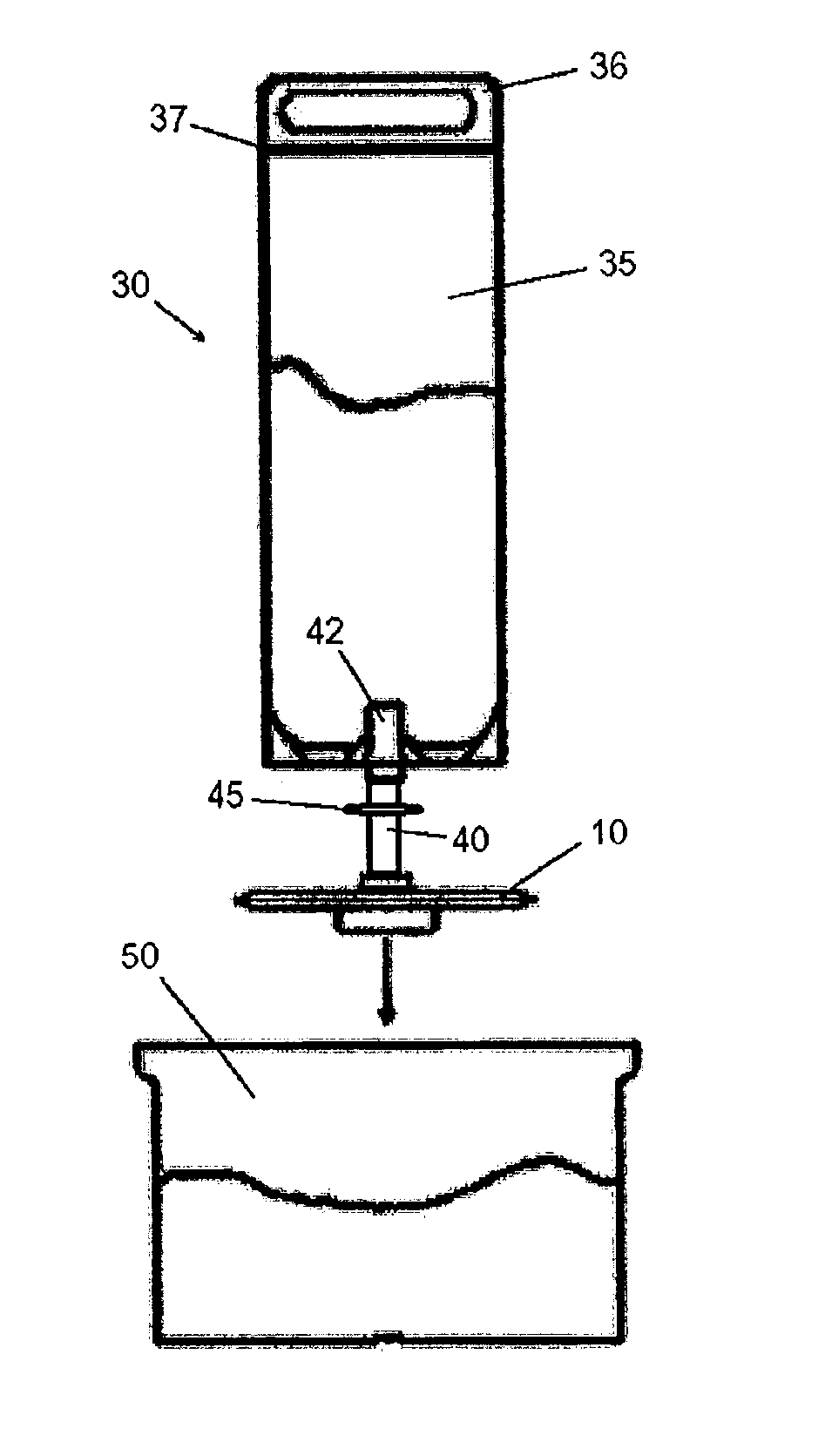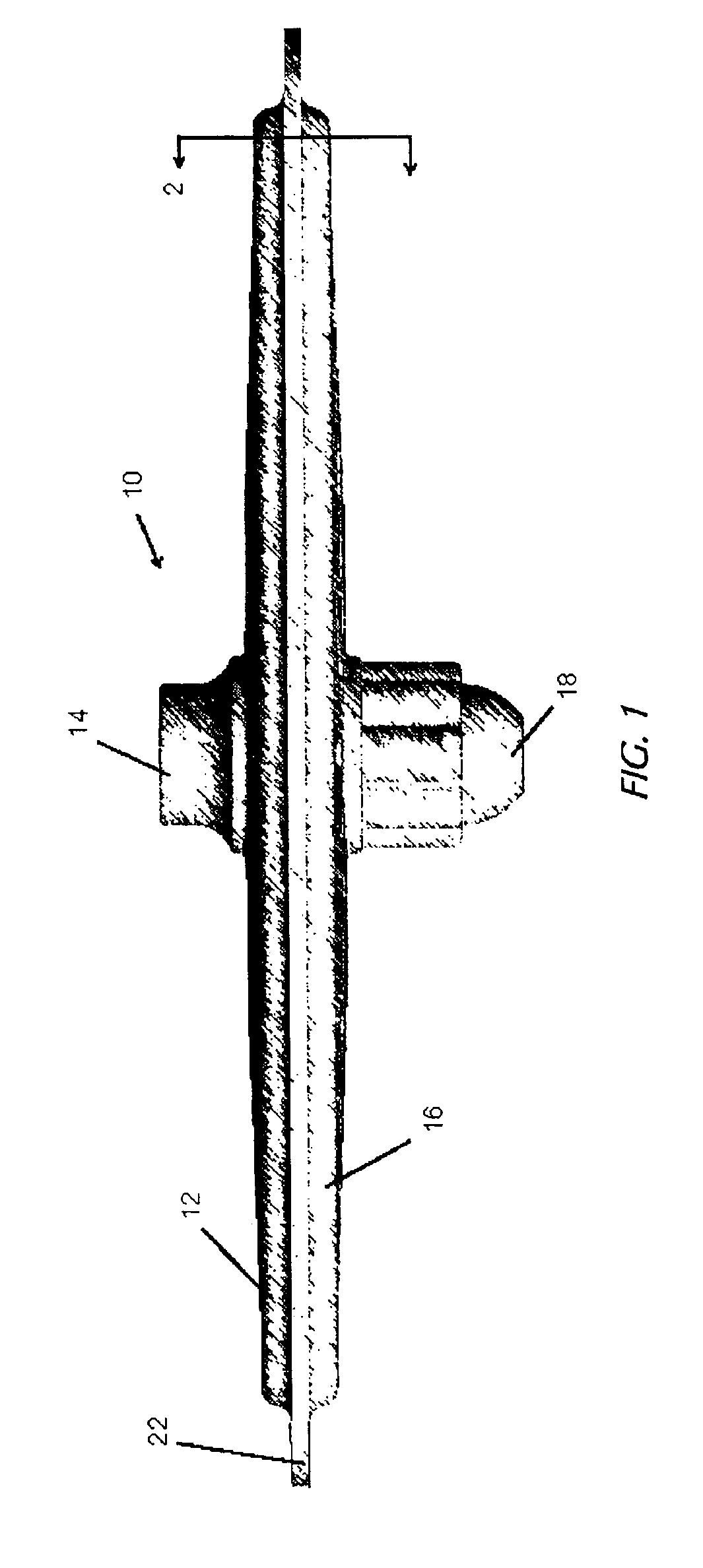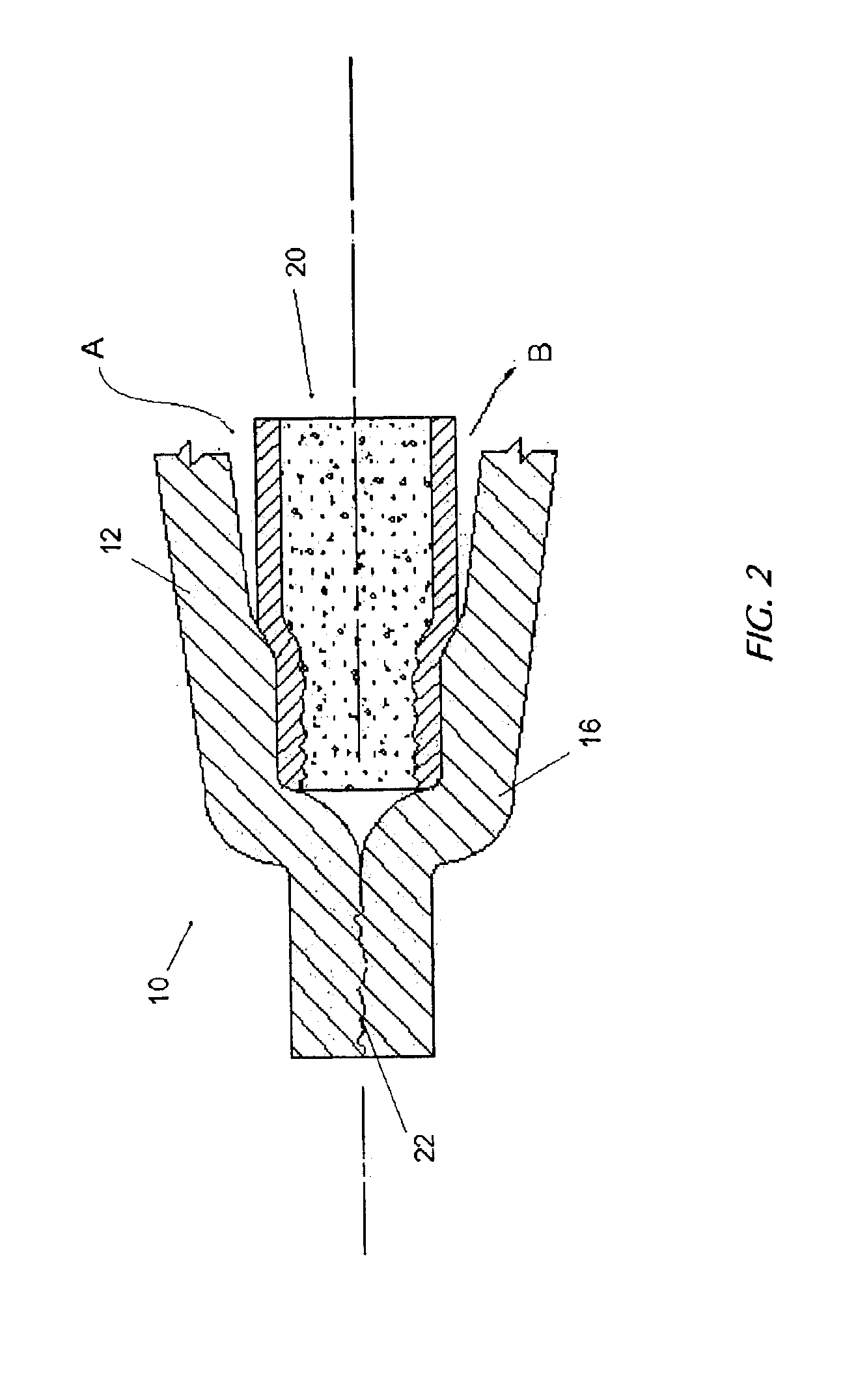Microporous filter media, filteration systems containing same, and methods of making and using
a filter media and microporous technology, applied in the field of microporous filter media, filtering systems containing same, and methods of making and using, can solve the problems of poor physical integrity, insufficiently small pore size, and insufficient filter performance, and achieve high charge density, high charge density, and high charge density
- Summary
- Abstract
- Description
- Claims
- Application Information
AI Technical Summary
Benefits of technology
Problems solved by technology
Method used
Image
Examples
examples
[0114]The following examples are provided to illustrate the present invention and should not be construed as limiting the scope of the invention.
[0115]Porometry studies were performed with an Automated Capillary Flow Porometer available from Porous Materials, Inc., Ithaca, N.Y. Parameters determined, using standard procedures published by the equipment manufacturer, include mean flow pore size and gas (air) permeability. The flow of air was assayed at variable pressure on both the dry and wet filter medium. Prior to wet runs, the filter medium was initially immersed in silicon oil for at least 10 minutes while held under high vacuum.
[0116]Zeta or streaming potential of various filter media was determined using streaming potential and streaming current measured with a BI-EKA Electro-Kinetic Analyzer available from Brookhaven Instruments, of Holtsville, N.Y. This instrument includes an analyzer, a flat-sheet measuring cell, electrodes, and a data control system. The analyzer includes ...
examples 1-3
Filter Medium Made with Untreated Lyocell Fibers (Comparative)
[0118]Filter medium made from untreated lyocell fibers having a mean flow path of about 0.3 to about 0.6 microns were prepared in accordance with the following method.
[0119]Dry EST-8 binder fibers having a weight of 0.45 g, commercially available from MiniFibers, Inc., was fully dispersed in 1.0 L of deionized water in a kitchen style blender on a pulse setting. Fibrillated lyocell fibers with a Canadian Standard Freeness of 45 and having a dry weight of 120.0 g were added as wet pulp to the dispersed binder fibers. The dispersed fiber mixture was blended for another 15 seconds. The fiber mixture was poured into a larger industrial Waring blender with an additional 1.0 L of deionized water and blended for an additional 15 to 30 seconds. The fiber mixture was poured into a 30.5×30.5 cm2 stainless steel FORMAX® paper deckle filled with about 12.0 L of deionized water and fitted with a 100 mesh forming screen. A 30×30 cm2 st...
example 4
Filter Medium Made with Lyocell Fibers Treated with the Microbiological Interception Enhancing Agent
[0123]To a blender were added 12.0 g dry weight lyocell fibers as a 10% by weight wet pulp having a Canadian Standard Freeness of about 45, 0.45 g SHORT STUFF® EST-8 binder fibers, and 1.0 L deionized water. The mixture was blended until the fibers were fully dispersed. To the blender was added 3.0 ml of MERQUAT® 100 as a 30% aqueous solution and the fibers blended with the MERQUAT® 100 for about 10 seconds and left to stand for at least about 6 hours. After about 6 hours, the fibers were poured into a standard 8 inch Brit jar fitted with a 100 mesh forming wire and excess water removed under vacuum. The resulting pulp sheet was rinsed with 500 ml of deionized water. The excess water was again removed by vacuum.
[0124]A dilute silver nitrate solution was poured uniformly over the pulp sheet to provide full exposure and saturation, providing about 0.1425 g of silver per sheet. The silve...
PUM
| Property | Measurement | Unit |
|---|---|---|
| molecular weight | aaaaa | aaaaa |
| molecular weight | aaaaa | aaaaa |
| zeta potential | aaaaa | aaaaa |
Abstract
Description
Claims
Application Information
 Login to View More
Login to View More - R&D
- Intellectual Property
- Life Sciences
- Materials
- Tech Scout
- Unparalleled Data Quality
- Higher Quality Content
- 60% Fewer Hallucinations
Browse by: Latest US Patents, China's latest patents, Technical Efficacy Thesaurus, Application Domain, Technology Topic, Popular Technical Reports.
© 2025 PatSnap. All rights reserved.Legal|Privacy policy|Modern Slavery Act Transparency Statement|Sitemap|About US| Contact US: help@patsnap.com



